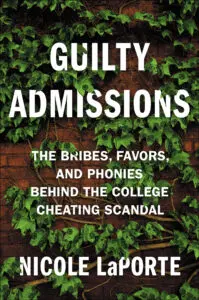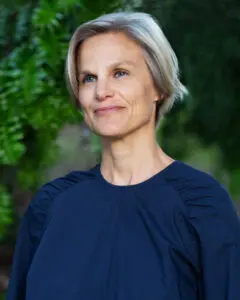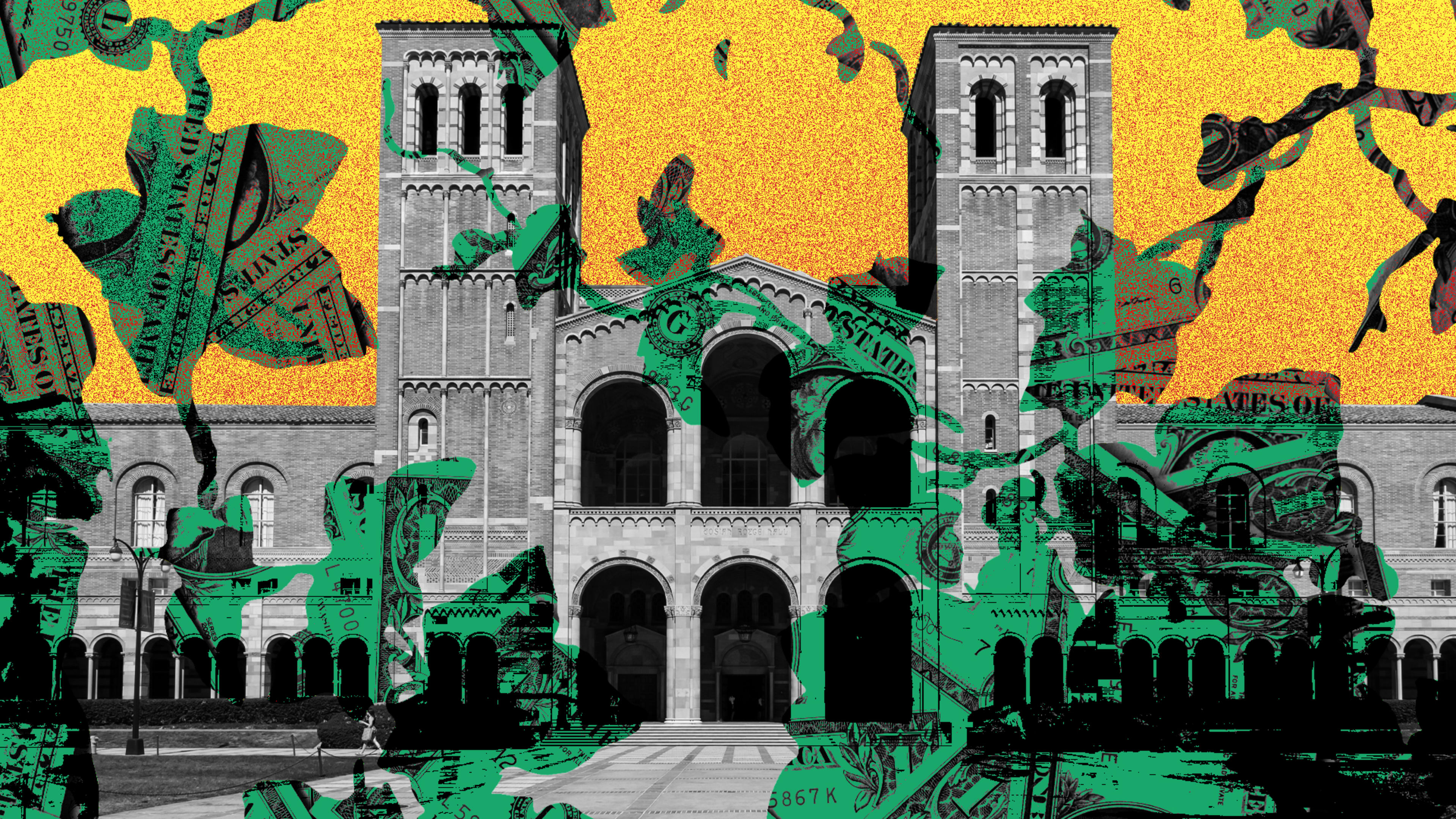Harvard-Westlake’s upper-school campus sits in the craggy foothills of Coldwater Canyon, a sylvan corner of the city where luxury SUVs careen down winding, wooded roads that splinter off into cul-de-sacs dotted with midcentury architectural master- pieces wedged into the mountainside—or leaning against it on terrifying one-hundred-foot stilts. Here, nature and wealth seamlessly coexist in a kind of stubborn harmony. If you can dream it, you can build it, mudslides and gravity be damned. Situated less precariously, at the foot of the canyon, Harvard-Westlake brings an old-world vibe to these distinctly LA environs.
Harvard-Westlake originally functioned as a finishing school for young white Protestant males—who dined on lobster Newburg and caught glimpses of Clark Gable trotting across campus on horseback—but today the school is much more ethnically if not economically diverse—and is considered a rocket launcher to twenty-first-century success. “It’s the ultimate bumper-sticker school,” declared one LA parent. Gettys, Fairbankses, and Gyllenhaals have all received diplomas from Harvard-Westlake, whose handsome red-roofed campus has led some to dub it a “mini Stanford.”

Some view it more as a corporation than a place of higher learning. The school’s top administrator carries the title of president, along with the more folksy “head of school” moniker adopted by other private schools in the area. Students slog through hours of homework a night in their college-level literary theory and microeconomics courses, and scoff at more progressive institutions across town, like Crossroads School, where there are no AP offerings and academia is considered just one part of a holistic journey. Until recently, a lunch break wasn’t mandatory at Harvard-Westlake, meaning many kids would eat on the run, in order to keep grinding.
During the school’s College Night in 2016, it tried to convey to parents that the experience kids have wherever they wind up, not to mention their family and personal relationships and the communities they involve themselves in, is far more important when it comes to crafting an identity and sense of self than a sweatshirt bearing the name of a prestigious college.
There are places where this message might be embraced and celebrated, where the idea of sending a child off to one of the “Colleges That Change Lives”—as former New York Times education editor Loren Pope dubbed intellectually stimulating but obscure colleges such as Goucher and Hope—would be considered sound advice. But Harvard-Westlake, which has an annual tuition of $39,700 and is populated by the offspring of the city’s top entertainment executives, attorneys, and business titans, is not one of them.
As one parent who was in attendance that night put it: “Everyone’s sitting there like, ‘I pay forty thousand a year, and my kid kills himself doing the work.’ Nobody wants to hear that Wash U is a fantastic place. It’s Harvard, Harvard, Harvard. Maybe Princeton.”
This mind-set, which dominates the elite world of LA education, explains why the city was the epicenter of the Varsity Blues scandal, which broke in March of 2019, and why parents here were so easily swindled by a con man. Dubbed “the biggest college admissions fraud of all time,” the scandal was masterminded by William “Rick” Singer, an independent college counselor based just south of Los Angeles, in Newport Beach, California, who used bribery and fake athletic profiles to get students admitted to such universities as Yale, Georgetown, and the University of Southern California. Criminal charges so far have been brought against forty parents, including actresses Felicity Huffman and Lori Loughlin—the latter paid $500,000 to get her two daughters into USC as fake crew recruits—and has reverberated nationwide ever since.

Los Angeles, specifically, is a microcosm where extreme wealth and ambition collide, undercut by a shamelessly transactional attitude toward business—including the business of education. This is a place, after all, where money is freely dispensed to procure yet another upgrade or VIP experience and where there’s always a way to grind out more favorable deal points. Indeed, “pay or play” is a widely accepted contract stipulation. “LA appreciates the game of it,” said one former private-school administrator. “Their whole take on it is, ‘Let’s just try to best the game. Let’s try to figure out where the pressure is.’ Because they do this on everything. They do this when they negotiate film contracts. They do it when they’re trying to add on to their house that they’re trying to show off. Everything is a deal.”
In top LA private high schools, the game for parents is getting their kids into a top college. Parents tackle it the way they do everything else in their lives: by winning favor with Important People—like the head of school and the members of a school’s board. They throw around their checkbooks to gain influence. A big enough donation, many believe, will put a child on the radar of the board, whose high-profile members will scour their contacts when it comes time to apply to college and make calls on the child’s behalf. Even a reasonable gift will procure an invitation to a private cocktail party at the head of school’s house, an evening that will not be forgotten when college applications are due. Expensive gifts are lavished on teachers (iPads, trips to Paris), and private pitching coaches are hired to work with the school’s baseball team—all to make it clear which parents have VIP status and which offspring need special care come college application time.
The elite schools, meanwhile, play into this, all but demanding “donations” and other acts of “giving” as soon as a child is accepted.
The practice of donating money to schools is a key factor in the Varsity Blues case. In some cases Rick Singer told parents to write checks to universities their children were applying to as part of his scheme; the money went to funds overseen by coaches and administrators who have been charged in the crime. Parents who are fighting the charges claim that their payments were just that—a donation, not a bribe. One parent told me that when Singer brought up the idea of making a donation, it didn’t seem strange. “We’ve been writing checks to schools since our kids were in elementary school.”
From the book GUILTY ADMISSIONS
Copyright © 2021 by Nicole LaPorte
Reprinted by permission of Twelve/Hachette Book Group, New York, NY.
All Rights Reserved.
Recognize your brand’s excellence by applying to this year’s Brands That Matter Awards before the early-rate deadline, May 3.
